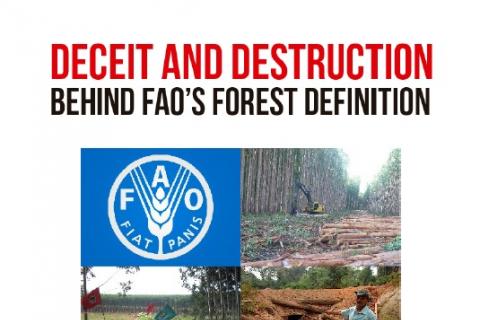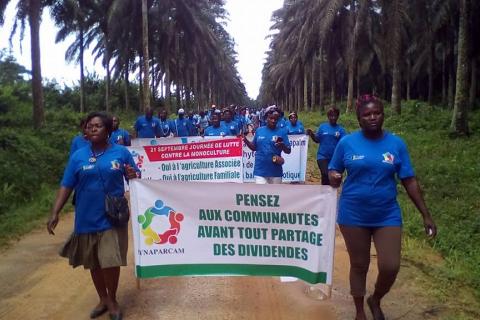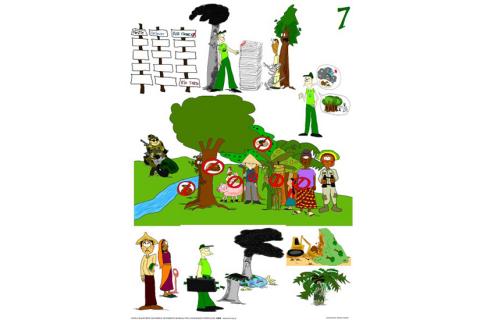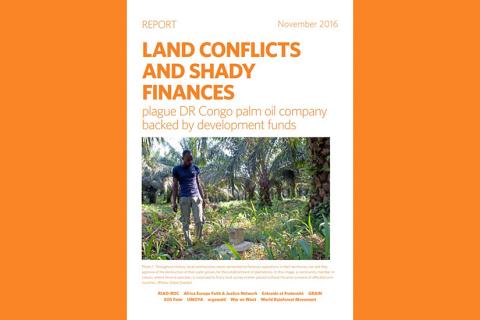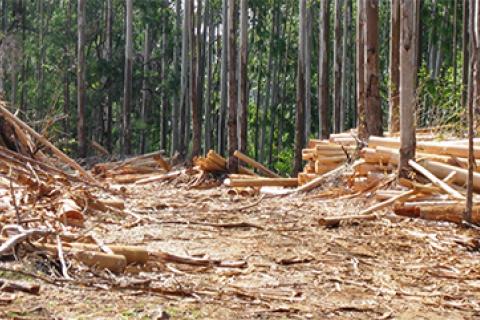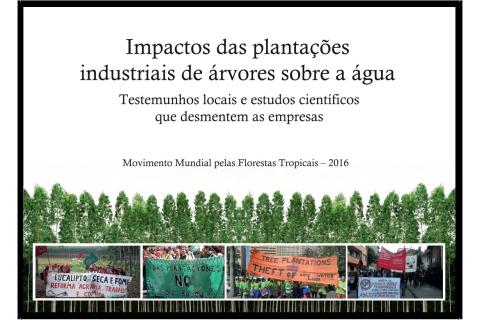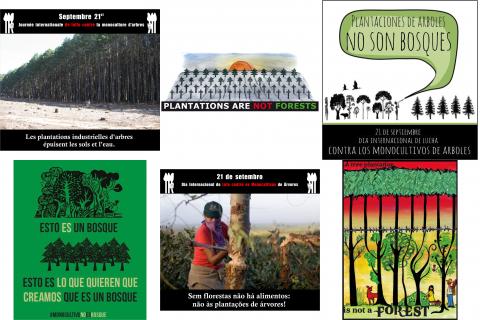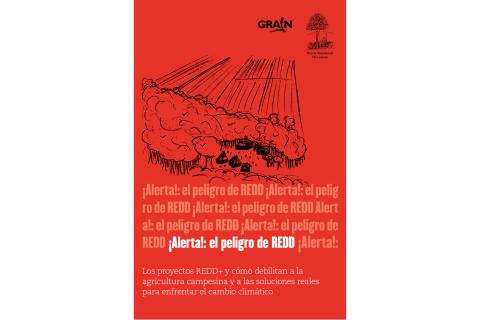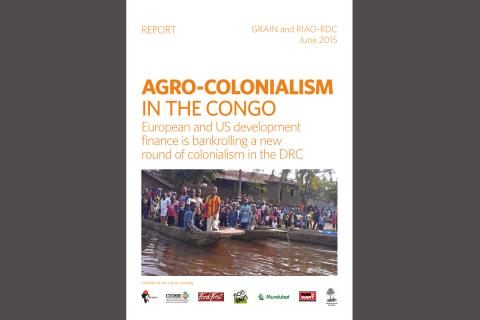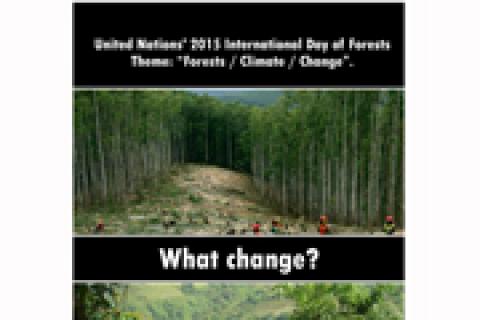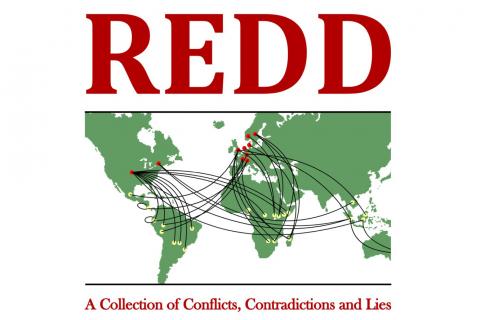Compilation of WRM Bulletin articles on the occasion of March 21st – UN International Day of Forests
Publications
"12 Replies to 12 Lies about Oil Palm Monoculture Plantations" has been updated. The publication now includes a chapter about how oil palm companies lie when they say they respect women's rights.
Seven flipchart posters and a booklet to help community activists to explain why REDD+ is not really about forests.
The report is also available in German, in Lingala and Swahili.
Download the publication. Also available in Swahili.
The briefing, “Impactos en el agua de las plantaciones industriales de árboles”, (Industrial tree plantations impacts on water), is a tool aimed at supporting local communities that suffer from the negative impacts of tree plantations on the local water resources they depend on.
21 September is the International Day of Struggle against Monoculture Tree Plantations. Download images to share!
A field report by WRM and Re:Common. Available in Malagasy.
A new joint publication by GRAIN and the World Rainforest Movement (WRM) looks at the dangers for peasant communities from one of the main carbon market mechanisms on the table at the upcoming UN summit on climate change in Paris.
Download the full report as pdf here
Report about how several prominent development finance institutions (DFIs) are funding Feronia Inc., a Canadian agribusiness company accused of land grabbing and human rights abuses in the Democratic Republic of the Congo (DRC).
United Nations’ 2015 International Day of Forests. Theme: “Forests / Climate / Change”. What change?
Download as pdf here.
The aim of this document is to respond to this year’s campaign for March 21 carried out by the Food and Agriculture Organization of the United Nations (FAO). In a very short video, FAO highlights forests’ capacity to trap CO2 and suggests: “Sustainably managed forests are the frontline against climate change.”
REDD: A Collection of Conflicts, Contradictions and Lies presents summaries of reports from 24 REDD projects or programmes with a common characteristic: they all show a number of structural characteristics that undermine forest peoples' rights, or fail to address deforestation. As offset projects, they all fail to address the climate crisis because by definition, offset projects do not reduce overall emissions: emission reductions claimed in one place justify extra emissions elsewhere.
